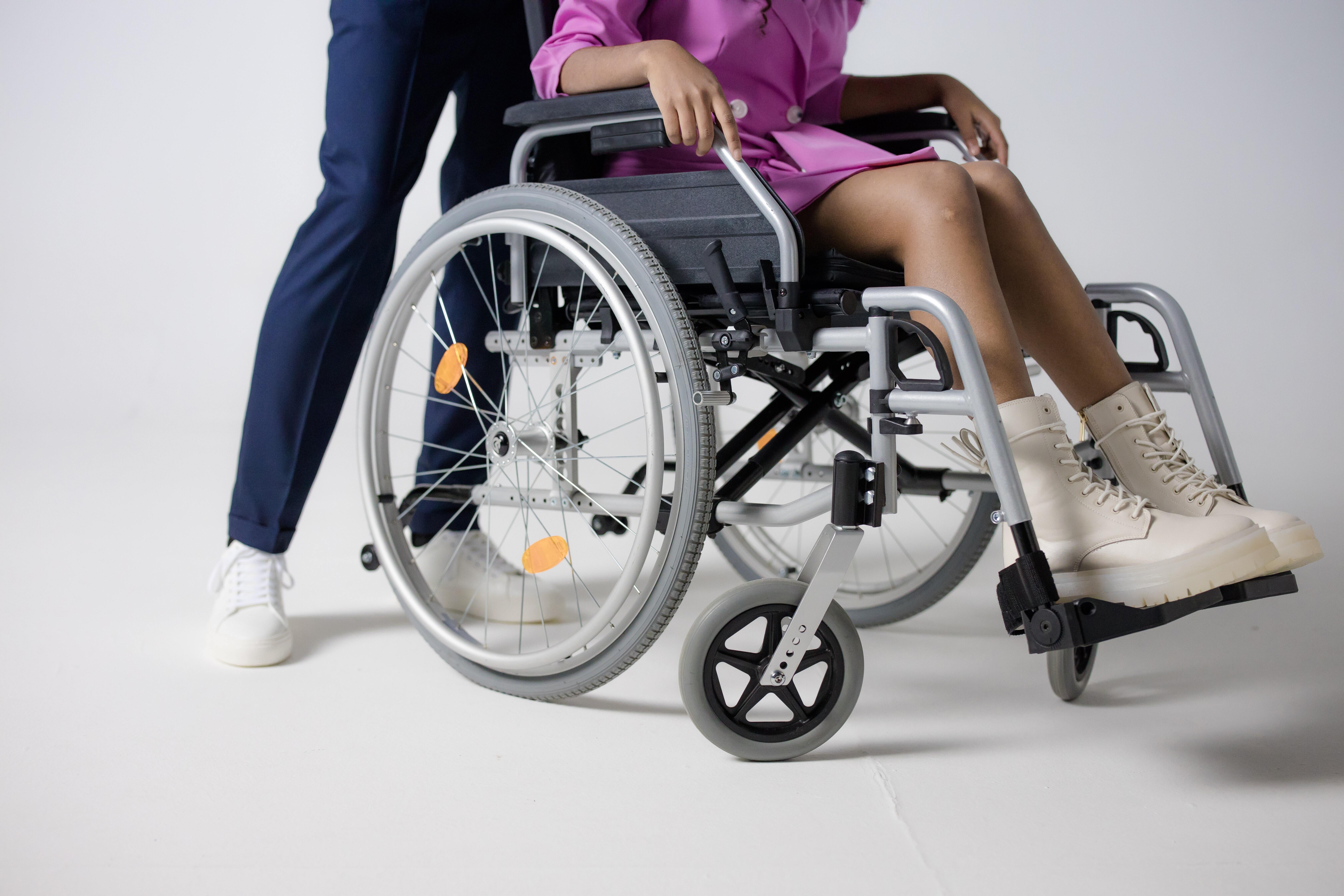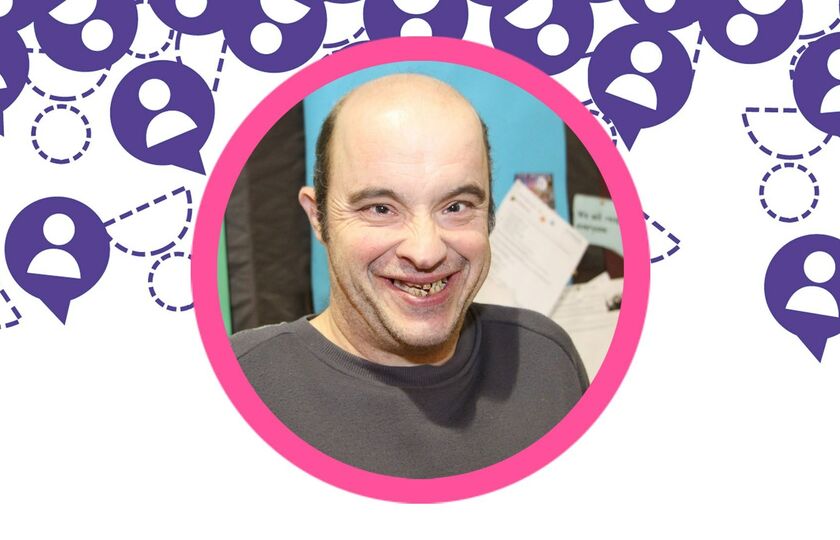Chailey Heritage Foundation can be contacted to book ‘Sex Factor’ training.
Supported Loving toolkit
Supporting people with severe or profound learning disabilities

People with severe learning disabilities and complex needs require lifelong learning and support in all areas of their lives, including relationships and sexuality education (RSE).
This page outlines practical techniques for teaching people with severe learning disabilities and complex needs, in a variety of settings. People with such complex needs require lifelong learning and support in all areas of their lives, including RSE, from staff who are sufficiently trained and will appropriately balance sensitive safeguarding issues with the human rights of the person.
Why is this topic important?
There is a general misconception that RSE is not needed for people with complex neuro-disabilities.
We have found:
- limited RSE for people to learn to stay safe, understand their bodies, relationships and sexuality
- staff ill-equipped to teach RSE to people with complex neuro-disabilities
- no appropriate resources
- lack of specialised openly descriptive/visual training regarding personal care
- families and carers unaware of the need for RSE or uncertain how to address this subject.
It is essential that RSE is accessible to all, so that people have as much understanding as possible about:
- their own body
- their sexuality
- personal safety issues
- relationships
- their rights
- where and who to go to for help
- the ability to communicate about relationships and sex.
By September 2021, RSE teaching will be compulsory across all schools. However many adults with learning disabilities and/or autism may not have received any RSE in school.
Common challenges and how best to support people
Challenges faced by people as a result of their disability
There is a lack of understanding, skills and confidence among individuals teaching people with very complex needs. There are few RSE resources for people with complex needs and a lack of training in specific teaching techniques. People with a severe learning disability (SLD)/or profound and multiple learning disabilities (PMLD) have cognitive barriers to learning. Abstract concepts can be extremely difficult for them. For example understanding:
- the difference between a friendship and a relationship
- what it means to ‘fancy’ someone
- what ‘private’ means (difficult when someone has intimate care throughout the day)
- why I need to masturbate in private places
- what my naked body looks like
- what ‘good’ and ‘bad’ touch are.
How best to support people with these challenges
- Use bespoke resources and teaching approaches which are accessible and help to make very abstract concepts more understandable.
- Learn how to use anatomically correct dolls effectively.
- Have trained and confident staff who can support people in this area.
- Have a balance between safeguarding vulnerable people and allowing them their human rights.
- Ensure that people using augmentative and alternative communication (AAC) are given communication access with relevant words/symbols.
- Create a ‘sex positive’ environment where it is fine to talk about personal issues and where people will be listened to and treated with respect.
Challenges faced by people due to restrictions from others
The needs of people with disabilities, in terms of RSE are not always considered. The topic presents difficulties for many staff, families and carers as it is a sensitive area, can be embarrassing, and may even be considered dangerous. Some faith communities may also be concerned about this topic in relation to a family member with complex needs.
Some organisations expressly forbid staff to discuss anything of a sexual nature with the people they work with. There is a tendency to emphasise the negative in RSE teaching – the dangers and risks associated, without including the positives, such as people can:
- be empowered to make informed choices about relationships
- have an understanding about their own body
- develop confidence and self-esteem
- explore sexual feelings and gain pleasure from this
- communicate about a range of relationship and sexual needs
- develop their understanding of personal safety.
How best to support
- Ongoing training with staff, which is clear about the importance of RSE for the people that they work with and their legal responsibilities to balance safeguards with human rights.
- Workshops for parents and carers who can be a huge part of a person's life and also great advocates for their relationship and sexual rights.
- Practical training for social care staff in how to legally assist with sex aids, with clear, well thought out guidelines within the organisation.
- Care plans to have a section which covers sexual and relationship needs.
Developing an RSE program
‘Sex Factor’ was developed by us at the Chailey Heritage Foundation. It is a user-friendly toolkit consisting of training sessions and resources, including 34 ready-made lesson plans and supporting videos for teachers and staff to deliver quality RSE to children and young people with complex neuro-disabilities. These stories are designed to be used with sensory objects and anatomically correct dolls.
Who is the training for?
- Children and young people with complex neuro-disabilities.
- Staff, teachers and parents who lack confidence to teach RSE.
- Local sexual health centres.
- Adult social care settings.
We provide training opportunities and regional workshops. The training has over 30 real life ready to teach story session plans across four categories: puberty, relationships, diversity and safety. This includes supporting video content, online support and discussion forums with advice on sourcing anatomically correct dolls and creating authentic lifelike training.
Watch Helen Dunman share her experience delivering RSE to people with multiple and profound learning disabilities.
Do...
- be clear about your responsibilities regarding this topic. Ensure that you know your organisation’s policies
- balance safeguarding with human rights
- be positive: sexuality and relationships should be about fun and pleasure
- join an organisation such as SHADA or Supported Loving for support
- be prepared to use a range of sensory resources to deliver support to your clients
- guide, but don’t judge. Be aware of your body language, intonation and the words you use.
Don't...
- use euphemisms - use correct anatomical language when talking about body parts and when supporting someone with intimate care
- make assumptions about someone’s sexuality - people with complex needs have the same range of sexual desires and needs as people without disabilities
- freak out - get help from a supportive, experienced colleague or get help from signposted organisations.
Case study
Frannie is a 23-year-old woman with a severe learning disability (SLD) and obsessive compulsive disorder (OCD). She lives in residential care and attends an adult activity hub during the day where she can choose which activities she does. Her support worker is concerned that there is a pattern of Frannie becoming especially anxious around the time of her period. Her OCD behaviours become more apparent at this time. Her support worker is new and doesn’t know what she can do to support Frannie to understand more about her body. Frannie is doubly incontinent and requires intimate care throughout the day, so never experiences changing a sanitary towel or tampon.
How to support Frannie
Frannie is interested in her body and is able to join an adult RSE group at the hub. The staff use a sensory story with her, using an anatomically correct doll, which explains in clear language what happens when a woman has her period and also reassures her that she is not ill and has not hurt herself. The staff in the group talk to Frannie's support worker about the importance of showing Frannie her incontinence pad with blood in it, when she receives intimate care, during her period.
This story is repeated many times both at the hub and by Frannie's support worker back at her home. After about six months her support worker notices a marked difference in Frannie, she has developed a greater understanding of her body and feels less anxious now when she has a period. This is based on a real situation and highlights the importance of supporting adults with complex needs to understand their bodies.
Top tip
- Don’t be scared, but do know what you are doing and why before you start.
Helen Dunman, a teacher at Chailey Heritage Foundation
The views expressed in the Supported Loving toolkit are not necessarily those of Choice Support.
Resources
Sex Factor
Should I tell them that? Developing relationship and sex education (RSE) for people you support
Watch our webinar with Gill Leno and Nigel Hodges to help you to explore key themes and prepare for successful delivery of inclusive, reflective and responsive RSE, tailored to the needs of people you support.
Helping it all make sense: developing bespoke RSE for the people you support
Nigel Hodges joins us for the second part of the webinar to speak about making bespoke RSE sessions.
Anatomically correct male and female cloth models
Anatomically correct male & female cloth models from BodySense.
Sex Education Book of Signs
A4 book with line drawings of signs for sex education. Contains approximately 150 concepts.
The Sexual Health and Disability Alliance
SHADA – The Sexual Health and Disability Alliance aims to support those professionals who include the sexual and relationship aspects of their disabled clients in their holistic care.
Sexuality and Severe Autism
This practical handbook guides you through the process of teaching about sex and sexuality for any parent, caregiver or health educator caring for a person on the severe end of the autism spectrum. Buy it here






